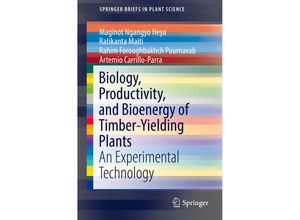Face to the current global energy crisis there is an urgent necessity of searching for
alternatives to fossil fuels and this book shows how timber is a promising resource for
sustainable energy production. Northeast Mexico represents an important forest resource to
satisfy the needs of the population in these areas. In order to harness these forest resources
technology for exploring these valuable resources must be developed. These technologies (with
special reference to biology and wood technologies) are available in scattered form in a few
books but there is no central comprehensive source for practical forest scientists for
adopting efficient forest management practice and exploration. This book deals with the
characterization of the vegetation morphology phenological development biomass production
(leaf litter wood) and bioenergy of some timber-yielding species of Northeast Mexico which
will serve as a guide to study timber-yielding plants in the native vegetation of Tamaulipan
thornscrub and experimental plantations. This includes morphology vegetation cover biomass
production in terms of volume leaf biomass litter and volume of fire wood and timber. Special
emphasis is given to the estimation of bioenergy products and chemical composition (Ph
extractable lignin and inorganic elements). Large variations exist in vegetation cover
morphology phenological development biomass production of leaf and litter volume of wood and
various variable of bioenergy products among the selected species. The maximum production was
found in summer and the volume of the harvestable timber was obtained in experimental
plantations. This book therefore will serve as a practical handbook to characterize
timber-yielding plants which will help to efficiently manage forestry resources.



